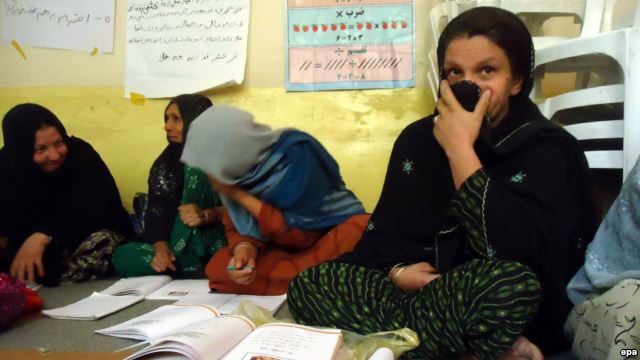Source: RFERL
Two years have passed since Habiba, a graduate of the education department at Kunduz University, began filling out applications for a teacher’s post at a local school.
For Habiba and the approximately 600 local women vying for public sector jobs, the route to employment has been fraught with disappointment: Officials have been known to demand bribes of 50,000 Afghani ($850), the equivalent of 10 months’ pay, for hiring female teachers, and women often encounter sexual harassment during job interviews.
A new initiative to employ more women in the public sector has lifted Habiba’s hopes. The Kunduz government has pledged to increase the number of women it employs from the current 3 percent to 20 percent. The new quote system requires public sector employers to give preference to women who score up to five points lower than male candidates on a job application.
“Out of the 500 posts in the government sector in Kunduz, a big chunk will go to women,” Habiba says. “Women consider this a wonderful opportunity. … I don’t know why people think women aren’t capable of reaching the same work results as men.”
The quota system is part of a “clean hands” campaign to thwart corruption among Kunduz bureaucrats. “Women are very less involved in corruption than men,” says the governor of Kunduz, Mohammad Omar Sapai.
He recalled his visit to the Kunduz Women’s Affairs Directorate, one of the province’s few government departments that employs women. The female staff arrived on time while the male staff arrived late and left early, Sapai says. “Women … are fully committed to their work,” he adds.
The number of women working in the Kunduz public sector is significantly lower than in neighboring Badakhshan, where almost 80 percent of teachers are women. Badakhshan also hold government-procured jobs in adjacent provinces, where they commute on recently constructed roads.
In 2008, a gathering of women’s rights activists demanded a greater role in the Kunduz government, which at the time only employed women in the Women Affairs Directorate. The women criticized the former mujahedin commanders who took control of Kunduz following the fall of the Taliban in 2002 for nepotistic practices that create obstacles for the recruitment of women. “Some of the officials appointed their relatives to posts in their departments, paving the way for institutional corruption,” Sapai says.
Kunduz Deputy Governor Hamdullah Danishi, a former mujahedin commander, denies the allegation that female candidates had been disadvantaged by previous provincial administrations. “There were no objections to the recruitment of women in the government sectors in the past, but now the governor’s office has created special incentives to ensure their employment,” he says.
Filling The Void
Sapai notes that Kunduz Province has some of the lowest numbers of female public sector employment in Afghanistan. Out of the 68 officials employed in his own office, only two are women, he adds.
The new quota system will give preference to female candidates seeking political and leadership positions in the provincial government. After their applications are processed, the women will be invited to take assessment tests and will automatically receive five more points than their male counterparts. In addition, 20 percent of the vacancies will automatically be filled by female candidates.
“If there is unfairness and discrimination against anyone, they should present documentation so that the member of the hiring committee is referred to attorney’s office,” Sapai adds.
In the great hall at the provincial government headquarters, some 600 women recently gathered to fill out applications for the newly available jobs.
“In the government sectors, there is a scarcity of female employees,” says Rubina, one of the female applicants at the event. She holds a degree in economics and accounting, and says she has been looking for a job for several years. “Today, many of these women have joined together to fill that void.”


